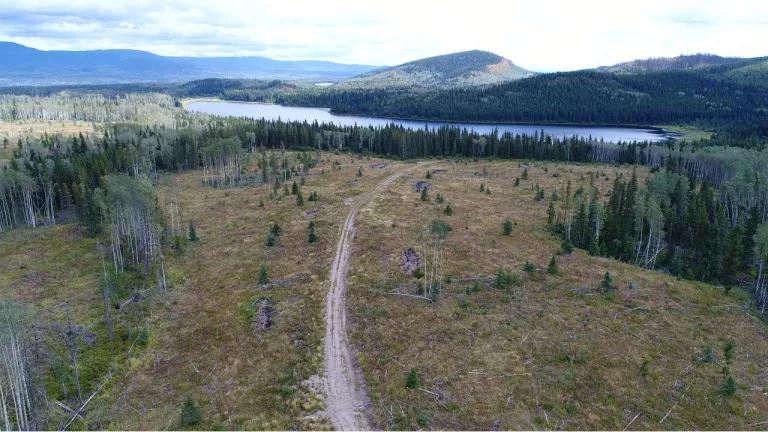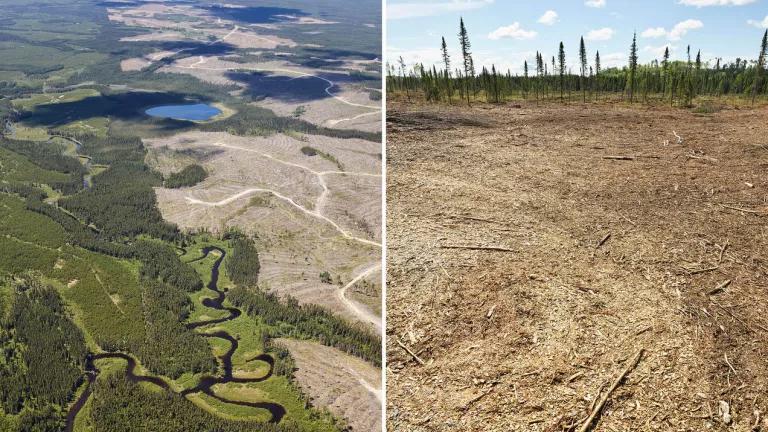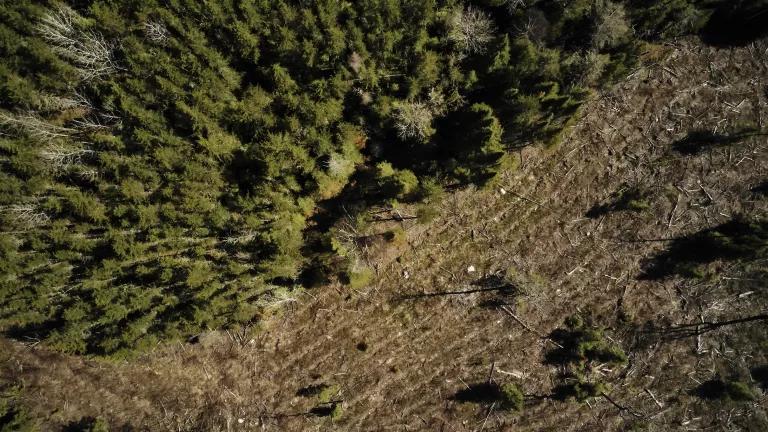Canada Is Undermining Meaningful Certification
Canada is taking a page out of industry’s playbook by characterizing all of its voluntary certifications as being strong indicators of sustainable forestry.

River Jordan for NRDC
In Canada, third party certifications of logging operations differ greatly in their requirements around sustainability and human rights. While the Forest Stewardship Council (FSC) is well-respected, its competitors – particularly the Sustainable Forestry Initiative (SFI)— are roundly condemned for their lax safeguards around harmful logging practices. Canada, however, is taking a page out of industry’s playbook by characterizing all of its voluntary certifications as being strong indicators of sustainable forestry. This is harmful messaging, which both gives the appearance of legitimacy to weak certification schemes, and undermines FSC.
In logging operations, certification means that a third-party organization has reviewed particular logging operations, and determined that they meet a certification system’s social and environmental criteria. If companies logging wood or selling wood-based products meet a certification’s specific criteria, those companies can put a label on their products which signals to the public that they have passed that certification’s test. The Canadian Government recognizes three forest certifications: FSC, SFI, and CSA (the Canadian Standards Association). But these certifications vary vastly in their requirements and rigor.
FSC, which was collaboratively established by environmental and social organizations and companies in the 1990s, is widely acknowledged by experts as being the only certification with rigorous requirements for logging companies in Canada. Yet less than a third of certified Canadian logging operations are FSC-certified. The rest of that certification is either by SFI, an organization consistently decried for virtually meaningless requirements for logging companies, or CSA, an organization Canada’s Competition Bureau is reviewing for branding itself as sustainable while rubberstamping the logging of irreplaceable old-growth forests. SFI was created by industry as a largely self-regulating alternative to the respected FSC system which would nonetheless appear to consumers to have similar standards as FSC. Yet despite its many deficiencies, SFI has certified by far the highest area of forest in Canada.
Unsurprisingly many of Canada’s logging companies, as well as wood and pulp purchasers, frame SFI and FSC as both having strong standards. This allows many of them to rely heavily or exclusively on SFI-certified logging without needing to meet FSC’s standards. What’s more surprising, and perhaps unsettling, is that Canada’s federal and various provincial governments also repeat this line.
On the one hand, as detailed in this blog, these governments’ touting of all certifications obscures the failure of these governments to establish permanent, binding protections for forests. But it also undermines meaningful certification systems. Canada characterizing all three certifications as legitimate disincentivizes companies from choosing the robust FSC system. It also undermines efforts by the FSC to improve its own standards. This is evident, for example, in standards around the protection of remaining primary forests--areas scientists stress must be safeguarded to meet global climate targets. In Canada, FSC currently requires the safeguarding of most of the intact forest landscapes (IFLs, or large connected areas of primary forest) within logging tenures. In this way FSC’s protections are far superior to those of SFI, which has no meaningful safeguards for primary forests at all. However, FSC does not prohibit primary forest logging altogether, not does it protect all of the IFLs within a tenure. FSC should enhance and expand these primary forest protections, to align with the urgings of climate and biodiversity experts. But because competing schemes are so weak – while Canada characterizes them as equally strong – the pressures for FSC to weaken primary forest protections are growing, particularly from industry. In fact, protections for intact forest landscapes are at risk of being scrapped altogether at FSC International’s upcoming General Assembly.
If Canada’s federal and provincial governments want to be able to tout certification’s benefits, they can’t treat them all as the same. Policymakers should acknowledge FSC as only widely-respected certification system, while enacting and enforcing legal safeguards that meaningful voluntary certification efforts can bolster. It’s bad enough that federal and provincial governments are shirking their responsibility for protecting Indigenous rights and safeguarding forest’s carbon storage and species habitat. Holding up weak certifications as solutions is salt in the wound.



